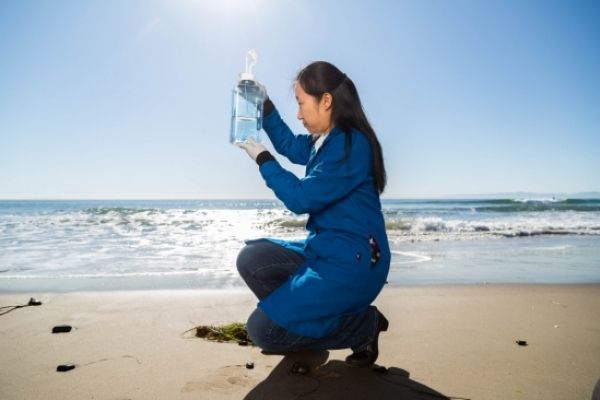Seawater is more than just saltwater. The ocean is a veritable soup of chemicals.
Part of that broth comes from dissolved carbon compounds, which account for a significant store of global carbon, on par with the amount held in the atmosphere. Researchers are actively working to classify what forms carbon takes in the world’s oceans, as well as the biological processes that recycle it in the ocean’s water.
Some molecules, like proteins and sugars, readily break down, while others are more resistant to degradation. A new study, led by UC Santa Barbara postdoctoral researcher Shuting Liu, investigated some of these more recalcitrant compounds and the microbes that can digest them. The results, which appear in the journal Limnology and Oceanography, illuminate basic aspects of the ocean carbon cycle and may help scientists predict the role microbes play in its regulation.
Continue reading at University of California Santa Barbara
Image via University of California Santa Barbara


